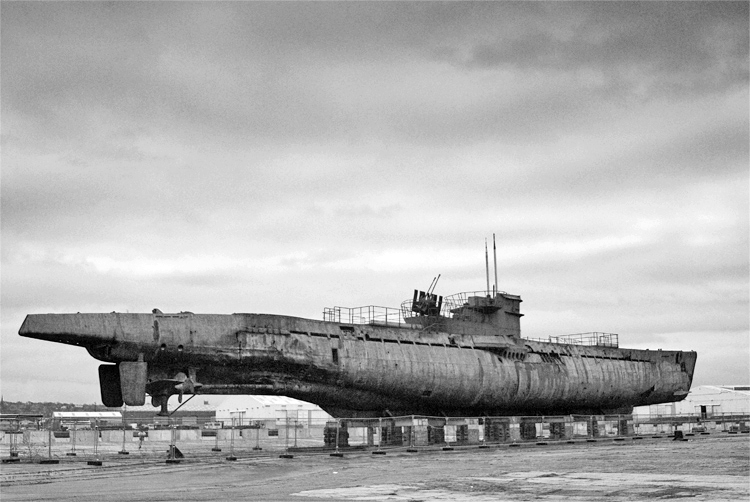The Battle of the Atlantic and developments in U-boat warfare
The Battle of the Atlantic and developments in U-boat warfare.
 |
| German U-boat |
- The Battle of the Atlantic was a long battle lasting throughout the majority of the Second World War between the Allies and Germany.
- Germans very effectively used U-boat warfare throughout the years 1939-42, giving them the upper-hand, sinking 1000 ships and a quarter of Britain's merchant fleet by 1940. By January 1943, the navy only had two months worth of oil supplies left.
- The Germans used "wolf pack" tactics. They had cracked the Allies' code so were able to wait with U-boats for Atlantic convoys to arrive, attacking in numbers. The British weren't able to effectively counteract these U-boat attacks and used out-of-date escort vessels.
- Air coverage of the Atlantic was successful in terms of attacking U-boats, but it could only stretch so far across the huge Atlantic, leaving a gap in the Atlantic ocean without air coverage, where lots of the U-boat attacks took place.
- U-boats were able to remain undetected by ASDIC -the British anti-submarine device - which relied on soundwaves travelling through the ocean. This was because the Germans attacked at the surface and at night. But, the entry of the USA into the war in 1941 meant that U-boat commanders had many more targets.
- Churchill began putting priority towards destroying U-boats during 1942, resulting in more U-boats being sunk and reducing Allied shipping losses. Between June-December 1943, the Germans lost 141 U-boats whilst the Allies only lost 57 ships. Admiral Donitz, the German U-boat commander, was unable to replace the sunken U-boats and, in March 1944, called off The Battle of the Atlantic.
- The Allies were able to gain success by using long range aircraft to protect convoys; decoding German radio messages and being able to tell where U-boat packs would be; improved training for convoys and getting better escort vessels; the Americans were able to build ships faster than the Germans could sink them.

No comments:
Post a Comment